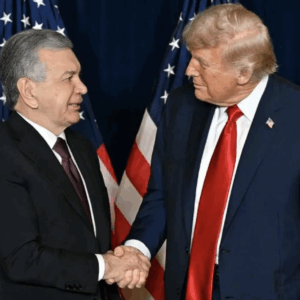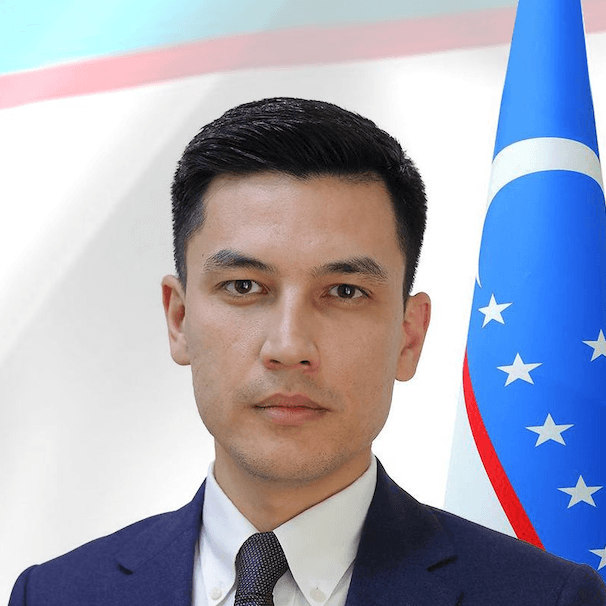Last week, President Donald Trump crisscrossed the Asia-Pacific, signing economic deals with America’s longtime allies like South Korea and Japan. Now his attention turns to Central Asia, a region emerging as one of the world’s most stable, fastest-growing, and strategically vital. This week’s C5+1 summit in Washington will bring together the U.S. and the five Central Asian governments — Kazakhstan, the Kyrgyz Republic, Tajikistan, Turkmenistan, and Uzbekistan, the country I represent — to strengthen our economic, energy, and security partnerships.
The growing U.S. focus on Central Asia reflects a recognition that it is a region on the rise. The upcoming meeting between President Shavkat Mirziyoyev and President Donald Trump, the second in just a few months, marks a new era of U.S.-Uzbek relations — an era where Uzbekistan, with its young, educated workforce, vast natural resources, and growing economic strength, has become a capable and reliable partner to the United States.
Arriving in Washington, the Uzbek delegation carries a sense of pride and determination after years of transformation that have elevated Uzbekistan from the periphery of Central Asia to a pillar of stability and one of the fastest-growing economies in the world. Uzbekistan is well-positioned to advance shared U.S.-Uzbek interests in trade, security, migration, energy, and other strategic areas.
The partnership is not based on words, but on actions. President Mirziyoyev’s convening of leading American companies — Boeing, Honeywell, Google, and John Deere — demonstrated what real collaboration can accomplish. With more than $105 billion in fresh investment commitments and agreements with U.S. companies, spanning everything from aviation to health care and digital infrastructure, these ventures are not just signatures on paper but bricks laid in the foundation of a shared future.
Uzbekistan’s economic landscape is changing at breathtaking speed. Uzbekistan’s $8 billion purchase of Boeing aircraft will modernize our civil aviation sector, create new skilled jobs for Americans and Uzbeks alike, and reinforce the global connectivity vital for prosperity in both countries. Collaborations such as our Competence Center for Geological Sciences and Mining Technologies, developed with U.S. institutions like the Colorado School of Mines, showcase a joint commitment to responsibly harnessing critical minerals, cornerstones for energy security and advanced technologies.
Our nation’s mineral wealth, valued at nearly $3 trillion, is a strategic asset that can secure global supply chains and support high-tech American industry. As President Mirziyoyev noted, critical minerals have assumed the same relevance in the 21st century as oil did in the past.
The partnership between Uzbekistan and the United States ranges across security, migration, and regional resilience. Through frameworks such as the C5+1 Critical Minerals Dialogue, we strive to build transparent, sustainable supply chains in partnership with our American and Central Asian counterparts. Uzbekistan’s record in countering illegal migration and human smuggling, through coordination of repatriation flights and robust law enforcement, reflects our philosophy: We aim to address regional problems responsibly, never outsourcing burdens that we can shoulder ourselves.
At home, the past eight years have been a period of remarkable transformation. Our GDP has doubled, foreign direct investment has increased fifteenfold, and more than 300 American businesses now operate within our borders. The number of universities has soared, with respected U.S. partners such as Arizona State University and Webster University elevating the skills of our young professionals. The number of Uzbeks pursuing higher education has leaped from nine percent in 2017 to nearly half of all eligible students today, developing an educated and ready workforce. Uzbekistan’s enhanced stability, open trade, and reconciliation with our neighbors have positioned us as a hub linking Central Asia, South Asia, the Middle East, and Europe. The United States, with its vision for greater regional connectivity, embodied in proposals such as a “Trump Corridor,” is a natural ally in this effort.
Our objectives for this visit are straightforward yet ambitious: to consolidate economic and security cooperation; to attract greater American investment; and to present Uzbekistan not as a remote partner, but as a nation aligned with principles that President Trump himself upholds — growth through enterprise, strength through stability, and prosperity forged by peace.
With American innovation and Uzbek resolve, we can build new industries, reinforce critical supply chains, and guarantee that the heart of Eurasia flourishes — open, prosperous, stable, and free.
As our presidents meet again, the Uzbek delegation is energized and optimistic. We stand ready to work with President Trump and the American people to pursue a future that lifts both nations.


